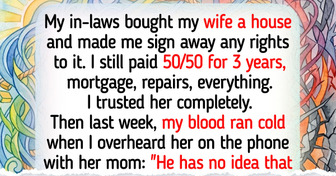I don't blame you for being upset. She doesn't have any right to invade your home without asking first and good for you for changing the locks. Coming over after asking first is only the polite thing to do and just barging in like that is just rude. Being family still doesn't give her the right to just let herself in like that and I'd be upset too. It's YOUR HOME NOT HERS and she needs to remember that. Sit her down and explain to her that you want and need your privacy and hopefully she gets the message. Barging in like that is just heartless and rude. Good for you.
I Secretly Changed the Door Lock, So My In-Laws Can’t Come In—I’m Done Being the Doormat
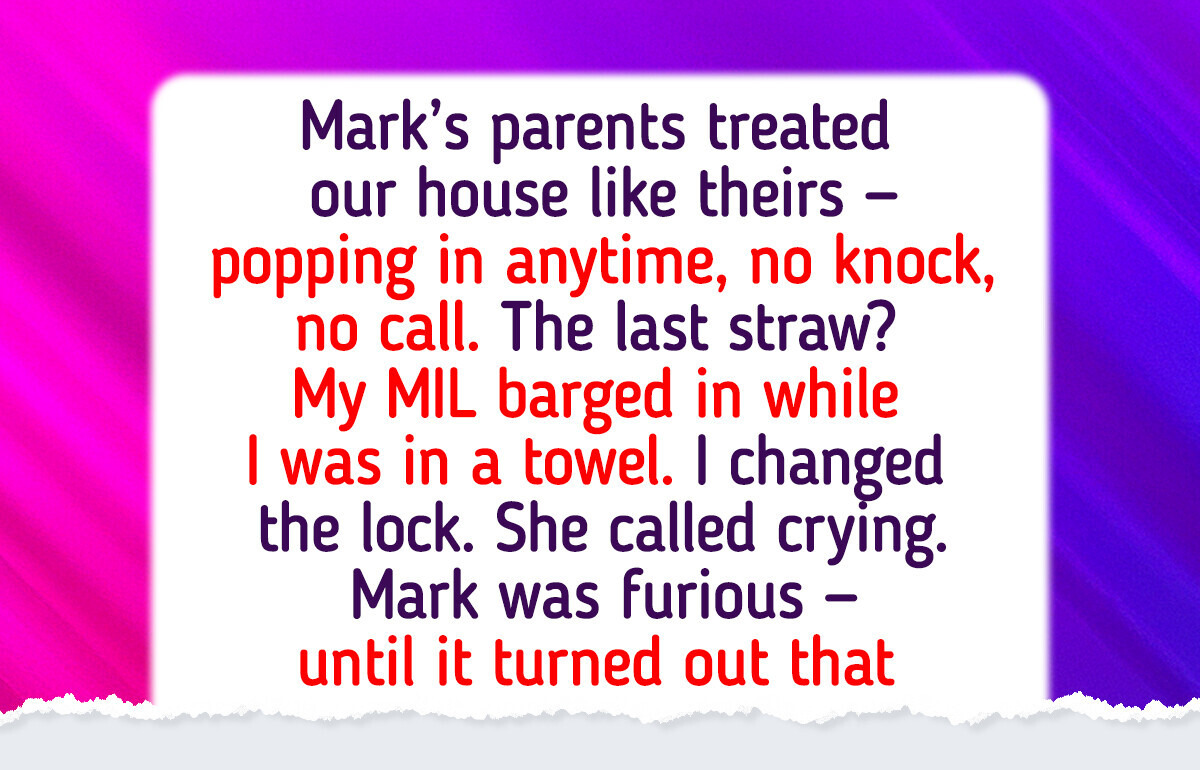
They called it dramatic. She called it survival. Our reader quietly swapped the lock after one too many unannounced drop-ins—and overnight, a family spat erupted. Here’s what happened next.
The letter of our reader:
Hi Bright Side!
When I married Mark, I thought his parents would give us space. Instead, they had a spare key and treated our home like theirs—dropping by during dinner, on weekends, even once at 7 a.m. “We’re family, we don’t need to call,” his mom said.
I begged Mark to set boundaries, but he kept saying, “They mean well.” Last month, after his mom walked in while I was in a towel, I’d had enough. The next day, I quietly changed the lock and went to work.
The same day, my MIL tried to come over—and couldn’t get in. They called Mark in tears (he was on a business trip), saying I “locked them out of their own son’s life.”
Mark was furious—until he found out they’d been entering while we weren’t home. Now he’s the one who says, “We should’ve done this sooner.”
Sometimes peace sounds like a door that finally stays closed.
A.
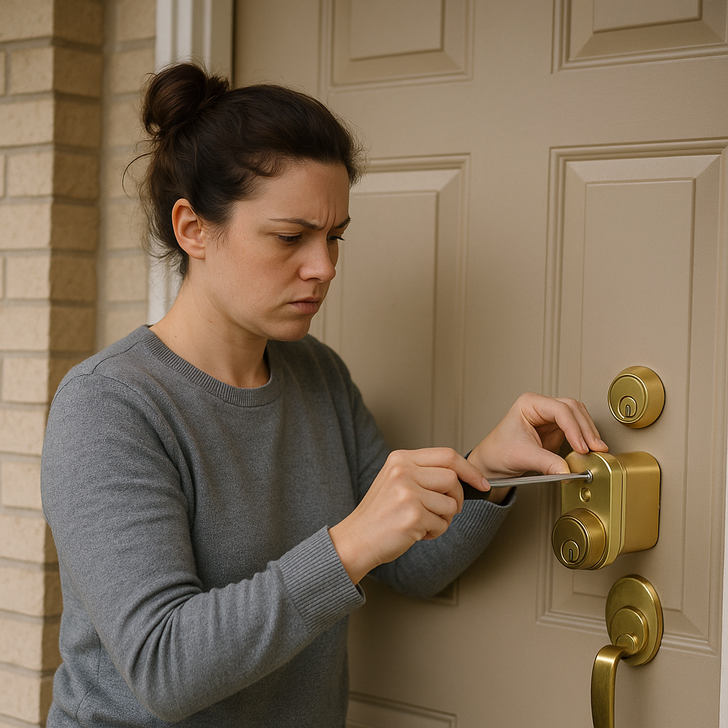
Thank you for sharing this story—and for trusting us with such honest moments from everyday life. It’s stories like yours that remind others they’re not alone when dealing with difficult family boundaries.
Why boundaries feel like betrayal (but aren’t)
Psychologists say guilt often follows when we set boundaries—especially in families where “access” has always meant love. But emotional closeness doesn’t depend on constant contact. Research shows that healthy boundaries actually strengthen relationships by reducing resentment and preventing burnout.
When someone gets upset about your boundaries, it often says more about their self-awareness than about you. Psychologists explain that people with low emotional awareness struggle to recognize their own feelings—so instead of asking “Why does this make me anxious?” they look for someone to blame. And when a boundary appears, it becomes an easy target.
Our brains react differently to limits depending on how self-aware we are. A grounded, self-aware person thinks, “Okay, this person needs something I didn’t realize—I can adjust.”
But a person who’s not used to emotional reflection hears danger bells: “They’re rejecting me!” Their mind confuses boundaries with abandonment, which is why even simple limits can trigger defensiveness or guilt.
So if someone takes your boundary personally, remember—it’s not about rejection. It’s about their fear of losing control or connection. And that fear? It’s theirs to heal, not yours to carry.
Some tips when you set boundaries

🌱 1. You’re not wrong for how you feel
Feelings don’t make you a bad person—they make you human. You can’t choose not to feel anger, sadness, or detachment, but you can choose what to do with those emotions.
Therapists say that acknowledging your feelings is the first step toward healing. Ignoring them only keeps you stuck in patterns that hurt you—and everyone else around you.
💬 2. Don’t confuse the “Why” with the “How”
Most relationships break down not because of why we set a boundary, but how we deliver it.
You might have every right to ask for space or stop helping someone—but if you wait until you explode, the message gets lost in the anger.
It’s okay to say, “I need space,” before it turns into, “I can’t take this anymore.”
💡 3. Own your part—and let go of the rest
You can apologize for how you handled a boundary without taking back why you needed it. That’s not weakness—that’s emotional maturity.
Owning your flaws frees you. You stop trying to be perfect and start being honest. You’re allowed to say, “I could’ve done that better,” while still protecting your peace.
🌻 4. Remember why you set the boundary
Boundaries exist for a reason—usually after months or years of trying everything else.
Ask yourself: What would my life look like if I hadn’t set this line?
If the answer is resentment, exhaustion, or pretending to be okay when you’re not—then you already know you made the right choice.
🧠 5. Separate intention from impact
Sometimes, protecting your peace will hurt someone else—and that’s okay. There’s a difference between causing pain to harm and causing pain to heal.
You’re not cruel for needing distance. You’re human for trying to stay whole.
❤️ 6. Talk about your shame—don’t let it grow
Psychologists say shame can’t survive being spoken aloud. Share your story with someone safe—a friend, therapist, or support group.
When you bring your guilt into the light, it loses power. Vulnerability isn’t weakness; it’s how you start to heal.
Boundaries don’t break families—entitlement does.
Sometimes protecting your peace means locking more than just a door.
Comments
APOLOGIZE? FOR WHAT? All of this PSYCHOBABBLE about HOW to deliver the message, is BULLSHIT. NO ONE, ESPECIALLY PARENTS, SHOULD BE GIVEN A KEY TO THEIR KIDS HOME. Invasion of privacy IS NOT THEIR RIGHT. They never mean well. That is just code for "I am too weak to stand up to them". If YOU DID NOT INVITE THEM OVER, AND OPEN THE DOOR FOR THEM, THEY ARE TRESPASSING. Get a lock that needs a fingerprint to open. It WILL PAY FOR ITSELF IN PEACE OF MIND. I was the only one of the kids with a key to my mom's house and that was because I lived the closest to her. I NEVER USED IT WHEN SHE WASN'T THERE. I ALWAYS CALLED BEFORE I WENT OVER. RESPECT FOR EACH OTHER IS THE MOST IMPORTANT THING.
Related Reads
I Refuse to Forgive My Parents After They Took My Inheritance for Being Childless
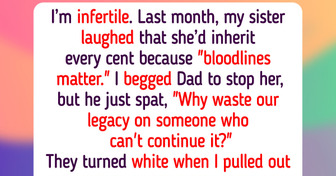
20 Job Interviews That Went Off Script and Ended in the Most Unexpected Way
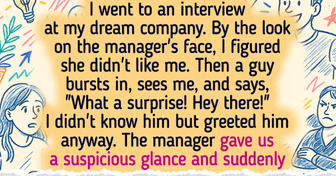
15 Stepparents Who Earned Their Stepchildren’s Love in Unexpected Ways
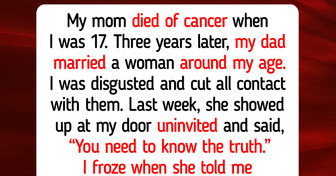
I Got Fired for Refusing to Let My Boss Humiliate Me in Front of Everyone
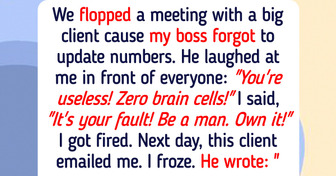
I Refused to Be Called the Office Villain by a Coworker Who Barely Works
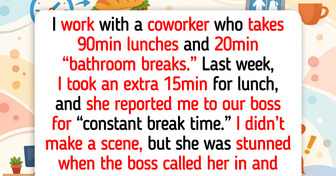
My Toxic Coworker Spread Lies About Me and Got Me Demoted—but I Got the Ultimate Victory
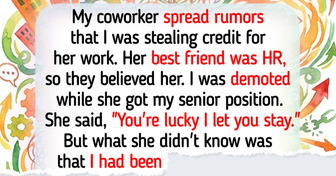
12 Moments Where Empathy Showed the Power of a Kind Heart
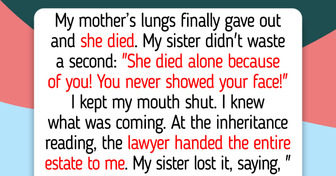
10 Moments That Prove Kindness Prevails Even in an Unfair World
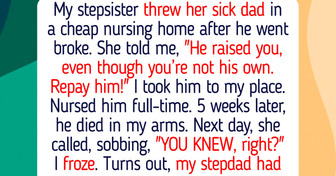
14 Friends Who Have a Black Belt in Creating Awkward Situations
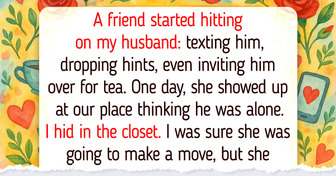
10 Moments That Show Kindness Doing the Heavy Lifting
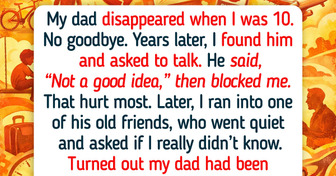
14 Quite Acts of Kindness That Changed Someone’s Life Forever

I Paid Half the Mortgage for Years—Then I Refused to Be Used Anymore
